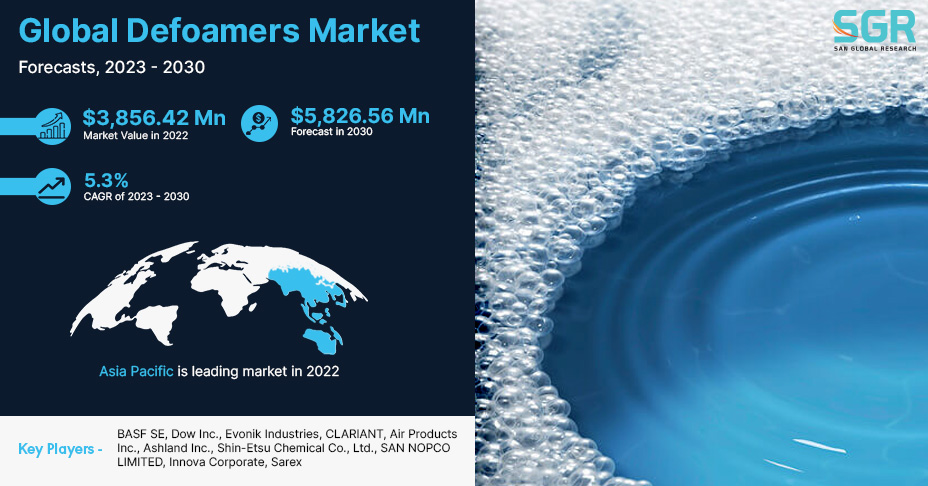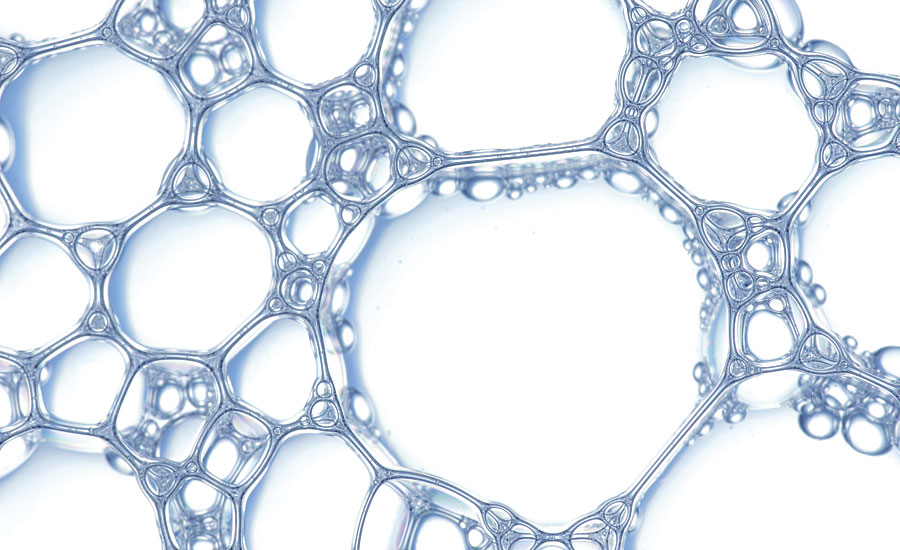How Defoamers Are Used to Prevent Foam in Food and Beverage Production
The Function of Defoamers in Enhancing Product Top Quality and Performance
Defoamers offer as vital ingredients that alleviate this problem, making certain smoother production process while improving the functional and visual characteristics of the final items. The option of the ideal defoamer can be crucial to accomplishing optimal results, increasing vital inquiries about formulation compatibility and efficiency metrics that warrant additional exploration.
Understanding Defoamers
Understanding the role of defoamers is necessary for maintaining product quality across various industries. Defoamers are chemical additives developed to avoid the development and minimize of foam in liquid systems, which can negatively affect procedures such as mixing, filling, and surface stress. Frothing can cause inadequacies, item flaws, and jeopardized aesthetic charm, making defoamers a critical component in making operations.
In commercial applications, defoamers aid to improve item consistency and stability. The effective usage of defoamers not only makes certain smoother manufacturing procedures however likewise contributes to remarkable item efficiency.
Furthermore, the option and formulation of a defoamer have to line up with specific application needs, such as compatibility with other active ingredients, effectiveness under varying temperature and pH conditions, and possible regulative restraints. Inevitably, comprehending defoamers' functions and their relevance in different solutions is critical for enhancing production and making sure the finest end items.
Types of Defoamers
Defoamers can be classified right into numerous types based on their make-up and mechanism of action. The main kinds consist of silicone-based, non-silicone natural, and inorganic defoamers.
Silicone-based defoamers are among one of the most effective, largely due to their ability to spread swiftly on the fluid surface and disrupt foam formation. Their special chemical framework enables for premium stability, making them suitable for high-temperature applications and environments with varying pH degrees.
Non-silicone natural defoamers, often composed of natural oils or fatty acids, are valued for their biodegradability and lower toxicity. These are normally made use of in food and drink applications where safety and security and environmental effect are paramount.
Not natural defoamers, which consist of materials like talc or calcium carbonate, act by increasing the density of the liquid, consequently minimizing foam security. They are commonly utilized in industrial procedures where compatibility with various other products is not a problem.
Each type of defoamer has distinctive benefits and restrictions, enabling for tailored services depending upon the particular foaming issues run into in various applications. Understanding these distinctions is critical for enhancing performance and attaining desired product top quality.
Applications Across Industries
Various industries utilize defoamers to boost product top quality and functional effectiveness. In the food and beverage field, defoamers are critical in procedures such as brewing and milk production to prevent foam development, which can bring about inefficiencies and item disparity. By controlling foam, suppliers can make certain far better return and a more consistent product.
In the pharmaceutical sector, defoamers play an essential function in the formulation of fluid medications, where excessive foam can restrain mixing and exact dosing. Their usage helps maintain the honesty of the formulations and promotes smoother production procedures.
The More hints paint and finishings industry likewise relies on defoamers to enhance the efficiency of products throughout application. By reducing foam, these ingredients make certain a smoother surface and enhance the visual top qualities of the end product.

Advantages of Making Use Of Defoamers
While the application of defoamers differs throughout industries, their benefits regularly improve product high quality and procedure performance. One substantial benefit is the decrease of foam formation during producing procedures, which can otherwise result in production hold-ups and incongruities in item top quality. By decreasing foam, defoamers make it possible for a smoother circulation of materials, promoting more reliable procedures and decreasing the possibility of tools breakdowns.
In addition, making use of defoamers can improve the look and appearance of last items. In fields such as finishings, paints, and food handling, too much foam can endanger the aesthetic looks and overall top quality, while the proper defoamer application guarantees an uniform coating and desirable characteristics. In addition, defoamers can contribute to set you back financial savings by decreasing waste throughout production and maximizing making use of basic materials (defoamers).

Selecting the Right Defoamer
Picking the appropriate defoamer is essential for maximizing manufacturing procedures and making certain item top quality. The selection official source of defoamer influences not just the performance of foam control however also the general efficiency qualities of the end product. Variables to think about consist of the kind of application, the chemistry of the formula, and the environmental conditions under which the item will be used.
Various markets may require details defoamer kinds, such as silicone-based, natural, or polymeric defoamers. Comprehending the compatibility of the defoamer with the main ingredients is important to stay clear of adverse responses that might compromise item stability. In addition, the defoamer's performance in numerous temperature levels and pH degrees should be evaluated to make certain regular performance.
Examining the defoamer in small-scale applications can offer important insights right into its performance and viability. Consideration of governing conformity, particularly in food, drugs, and cosmetics, is vital in choosing a defoamer. Eventually, a detailed evaluation of these variables will cause the selection of a defoamer that not just regulates foam successfully yet also improves the quality and efficiency of the end product.
Final Thought

In final thought, defoamers are important additives that considerably improve product quality and efficiency throughout different industries. The strategic selection and application of defoamers lead to cost savings, maximized source use, and increased client fulfillment.
Lathering can lead to inefficiencies, item issues, and jeopardized visual allure, making defoamers an essential part in producing procedures.
